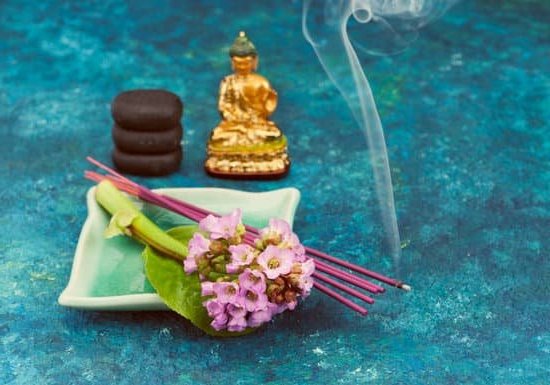During pregnancy, expectant mothers often seek natural remedies for various discomforts, including the use of aromatherapy. While essential oils can offer therapeutic benefits, it is crucial to understand what aromatherapy a pregnant woman should stay away from to ensure the safety of both the mother and the baby.
Many essential oils have potent properties that can affect hormone levels, blood circulation, and even induce contractions, making them potentially harmful during pregnancy. Therefore, choosing safe essential oils is paramount when considering aromatherapy for pregnant women. Understanding the benefits and risks associated with these aromatic compounds is key to making informed decisions for a healthy pregnancy.
In this article, we will delve into the importance of selecting safe essential oils during pregnancy, explore common essential oils to avoid due to potential risks, consider alternative options for aromatherapy, offer tips for safely using essential oils while pregnant, and emphasize the necessity of consulting healthcare providers before incorporating aromatherapy into a prenatal care routine.
By prioritizing safety and well-being in aromatherapy choices during pregnancy, expectant mothers can enjoy the soothing benefits without compromising their health or that of their babies.
The Importance of Choosing Safe Essential Oils for Pregnant Women
During pregnancy, it is crucial for women to be mindful of the essential oils they use for aromatherapy. While aromatherapy can have numerous benefits, not all essential oils are safe for pregnant women. The importance of choosing safe essential oils cannot be overstated, as some oils can pose risks to both the mother and the developing fetus. Understanding which essential oils to avoid during pregnancy is key to ensuring a safe and healthy experience with aromatherapy.
Understanding Safe Essential Oils
When it comes to choosing essential oils for aromatherapy during pregnancy, it is important to prioritize safety above all else. Some essential oils are known to have properties that may potentially harm the mother or the baby.
It is recommended that pregnant women stick to using only essential oils that are considered safe for use during pregnancy. Consulting with a healthcare provider or a qualified aromatherapist can help in identifying which essential oils are safe and beneficial during this special time.
Common Essential Oils to Avoid
There are several common essential oils that pregnant women should stay away from due to their potential risks. Examples of essential oils to avoid during pregnancy include clary sage, rosemary, basil, and cinnamon leaf, among others.
These oils have properties that may induce contractions or cause hormonal imbalances, which can be harmful during pregnancy. It is best for pregnant women to err on the side of caution and steer clear of these risky essential oils to ensure the well-being of themselves and their babies.
Common Essential Oils to Avoid During Pregnancy
During pregnancy, there are certain essential oils that should be avoided to ensure the safety and well-being of both the mother and the developing baby. It is important for pregnant women to be aware of which essential oils can potentially pose risks before incorporating aromatherapy into their routine. While some essential oils are known for their benefits, it is crucial to understand that not all are safe for use during pregnancy.
One of the most common essential oils that pregnant women should avoid is rosemary. This particular oil has stimulant properties that could potentially lead to uterine contractions, posing a risk of premature labor. Similarly, sage essential oil is another one to steer clear of during pregnancy as it can also stimulate contractions. Other essential oils such as cinnamon, clove, and oregano should be avoided as they may cause irritation or sensitization when used topically.
It is recommended for pregnant women to always consult with their healthcare provider before using any essential oils, especially if they have concerns about potential risks or are unsure about which oils are safe. Taking this extra step can help ensure a safe and healthy pregnancy journey while still being able to enjoy the benefits of aromatherapy in a cautious manner.
Prioritizing safety when it comes to choosing essential oils during pregnancy is paramount for the well-being of both the mother and the baby.
| Essential Oil | Risks |
|---|---|
| Rosemary | Potential uterine contractions leading to premature labor |
| Sage | Stimulation of contractions |
| Cinnamon, Clove, Oregano | Irritation or sensitization when used topically |
Potential Risks of Using Certain Essential Oils During Pregnancy
During pregnancy, it is crucial for women to be mindful of the essential oils they use in aromatherapy due to the potential risks that certain oils can pose to their health and the well-being of their baby. It is essential to stay away from essential oils that can have adverse effects on pregnancy. Here are some common essential oils that pregnant women should avoid:
- Clary Sage: This oil is known to stimulate uterine contractions and could potentially induce labor, making it unsafe for use during pregnancy.
- Pennyroyal: Pennyroyal oil has been linked to complications such as liver damage and miscarriage when used during pregnancy, making it a risky choice for expectant mothers.
- Rosemary: High doses of rosemary oil may have an impact on blood pressure and circulation, which can be concerning during pregnancy, especially in the first trimester.
It is important for pregnant women to educate themselves on the potential risks associated with certain essential oils and make informed decisions before incorporating them into their aromatherapy routine. The safety of both the mother and the baby should always be the top priority, leading expectant mothers to choose only safe and approved essential oils for their well-being.
While aromatherapy can offer numerous benefits during pregnancy, it is crucial to be cautious about the selection of essential oils used. Consulting with healthcare providers and experienced aromatherapists can provide pregnant women with valuable advice on safe practices. By taking proactive steps in avoiding risky essential oils and prioritizing safety, pregnant women can still enjoy the benefits of aromatherapy without compromising their health or their baby’s development.
Alternatives to Risky Essential Oils for Aromatherapy During Pregnancy
When it comes to using aromatherapy during pregnancy, safety should be the top priority for expectant mothers. While there are certain essential oils that pregnant women should avoid due to their potential risks, there are also numerous alternatives that can provide similar benefits without the concerns. By opting for safer options, pregnant women can still enjoy the therapeutic effects of aromatherapy without compromising their health or the well-being of their unborn child.
Safe Essential Oils for Pregnant Women
For pregnant women looking to incorporate aromatherapy into their routine, there are several essential oils that are considered safe to use during pregnancy. Some of these include lavender, chamomile, rose, and citrus oils such as sweet orange or mandarin. These essential oils have calming properties, promote relaxation, and can help alleviate symptoms like nausea and fatigue commonly experienced during pregnancy. It is important for pregnant women to dilute these essential oils properly and use them in moderation to ensure safety.
Benefits of Safe Alternatives
Choosing alternative essential oils that are safe for use during pregnancy can still offer a wide range of benefits. For example, peppermint oil can help relieve headaches and indigestion, while ginger oil is known for its anti-nausea properties.
Eucalyptus oil can aid in opening up congested airways and promoting easier breathing. By exploring these alternatives and understanding their potential benefits, pregnant women can tailor their aromatherapy experience to address specific symptoms or concerns they may be facing during this special time in their lives.
Avoiding Risky Essential Oils
While some essential oils may pose potential risks during pregnancy due to their strong properties or effects on hormone levels, it is crucial for expectant mothers to steer clear of these options. Oils such as clary sage, rosemary, cinnamon bark, and jasmine should be avoided by pregnant women as they have been linked to complications such as uterine contractions or hormonal disturbances that could be harmful to both mother and baby.
It is always best to err on the side of caution when selecting essential oils for aromatherapy during pregnancy and consult with healthcare providers for guidance on safe options.
Tips for Safely Using Aromatherapy During Pregnancy
During pregnancy, many women turn to aromatherapy as a natural way to alleviate common discomforts like nausea, stress, and fatigue. However, it is crucial for expectant mothers to be cautious about the essential oils they use during this delicate time. Certain essential oils can have adverse effects on both the mother and the baby if used incorrectly. So, what aromatherapy should a pregnant woman stay away from?
One of the key essential oils to avoid during pregnancy is sage. Sage contains thujone, which can lead to contractions in the uterus and potentially cause complications during pregnancy. Another essential oil to steer clear of is rosemary, as it may also trigger contractions and affect blood pressure levels. Additionally, juniper berry essential oil is known to stimulate uterine contractions and should be avoided by pregnant women.
Instead of using risky essential oils during pregnancy, it is recommended for expectant mothers to opt for safer alternatives like lavender, chamomile, or citrus oils. These essential oils are generally considered safe when used in moderation and diluted properly. Lavender can help with relaxation and sleep quality, while chamomile has calming properties that can reduce anxiety and stress levels. Citrus oils like orange or lemon can uplift mood and provide a refreshing aroma without any known harmful effects on pregnancy.
| Essential Oil | Potential Risks |
|---|---|
| Sage | Can lead to contractions in the uterus |
| Rosemary | May trigger contractions and affect blood pressure levels |
| Juniper Berry | Known to stimulate uterine contractions |
Overall, pregnant women should always consult with their healthcare providers before incorporating any essential oils into their aromatherapy routine. It is important to prioritize safety and well-being when choosing aromatherapy options during pregnancy. By staying informed about which essential oils to avoid and opting for safer alternatives, expectant mothers can enjoy the benefits of aromatherapy while ensuring the health of both themselves and their babies.
Consultation With Healthcare Providers
During pregnancy, it is crucial for women to be cautious about the use of aromatherapy to ensure the safety of both themselves and their unborn child. Consulting with healthcare providers before using any essential oils is highly recommended, as certain oils can have adverse effects on pregnancy. Here are some reasons why pregnant women should seek professional advice before incorporating aromatherapy into their routine:
- Health Assessment: Healthcare providers can assess the overall health and well-being of the pregnant woman before recommending any essential oils. This evaluation helps in determining if there are any pre-existing conditions or complications that may be exacerbated by certain aromatherapy practices.
- Risk Evaluation: A trained healthcare provider can provide valuable insights into which essential oils are safe to use during pregnancy and which ones should be avoided. They can identify potential risks associated with specific oils and offer alternative solutions for a safer approach to aromatherapy.
- Personalized Recommendations: Every pregnancy is unique, and what works for one expectant mother may not work for another. By consulting with a healthcare provider, pregnant women can receive personalized recommendations tailored to their individual needs and circumstances.
Seeking guidance from a healthcare professional ensures that pregnant women make informed decisions when it comes to using essential oils for aromatherapy during pregnancy. It is always better to err on the side of caution and prioritize the health and well-being of both mother and baby. Taking proactive steps to consult with experts can help avoid any potential dangers or complications that could arise from using unsafe essential oils during this delicate period.
Remember, when in doubt about what aromatherapy should a pregnant woman stay away from, always consult with your healthcare provider for reliable information and guidance specific to your unique situation. It’s better to be safe than sorry when it comes to the health of both you and your baby during this special time in your life.
Conclusion
In conclusion, when it comes to aromatherapy during pregnancy, the safety and well-being of both the mother and the baby should always be the top priority. Understanding the benefits and risks of essential oils is crucial in making informed decisions about which ones to use. Pregnant women should be cautious and avoid certain essential oils that are known to potentially cause harm during pregnancy.
It is imperative for pregnant women to choose safe essential oils that have been approved for use during pregnancy. Some common essential oils to avoid include rosemary, basil, sage, jasmine, and cedarwood. These oils have properties that may stimulate contractions or affect hormone levels, possibly leading to complications during pregnancy.
Consultation with healthcare providers is highly recommended for pregnant women interested in aromatherapy. Healthcare professionals can provide personalized advice based on individual health conditions and circumstances. Their guidance can help ensure that pregnant women make appropriate choices when using essential oils for aromatherapy. By prioritizing safety and well-being, expecting mothers can enjoy the benefits of aromatherapy while minimizing any potential risks to themselves and their babies during pregnancy.
Frequently Asked Questions
Which Essential Oils to Avoid When Pregnant?
There are several essential oils that should be avoided during pregnancy due to their potential toxicity. Oils like sage, rosemary, basil, jasmine, and juniper should be used sparingly or avoided altogether. It’s important to always consult with a healthcare provider before using any essential oils while pregnant.
What Smells Are Harmful During Pregnancy?
Certain strong smells can be harmful during pregnancy due to increased sensitivity and potential adverse reactions. Avoiding strong synthetic fragrances like perfumes, heavily scented lotions, and air fresheners is recommended. Additionally, exposure to strong chemical odors from cleaning products should also be minimized to prevent any negative effects on the developing baby.
What Is Good to Stay Away From When Pregnant?
During pregnancy, it’s best to stay away from certain foods and substances that can pose risks to the health of both the mother and the baby. This includes alcohol, raw or undercooked meats and seafood, unpasteurized dairy products, excessive caffeine intake, and high-mercury fish.
It’s also advisable to steer clear of smoking, recreational drugs, and unnecessary medications unless prescribed by a healthcare provider. Taking precautions like these can help ensure a healthy pregnancy and baby.

Are you looking for a natural way to improve your health and wellbeing?
If so, aromatherapy may be the answer for you.





